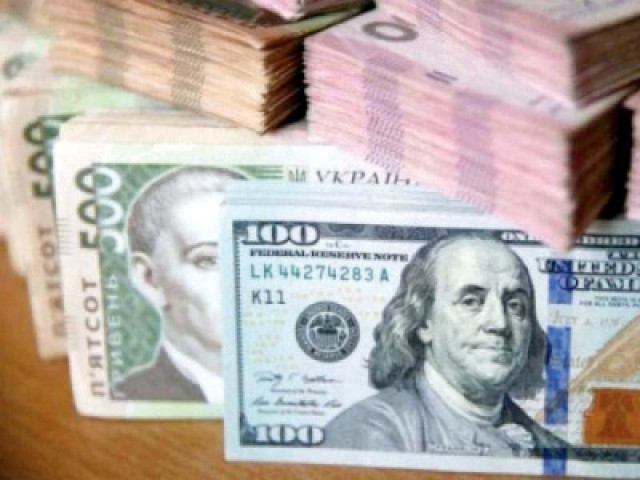External investment surges by 84%
Catapults to 30-month high, now standing at Rs501.30 billion

Foreign portfolio investors are gradually returning to Pakistan’s debt and equity markets after a prolonged absence, marking a significant shift in market sentiment. The short-term external investment has surged by a remarkable 84%, catapulting to a 30-month high, now standing at Rs501.30 billion. According to the weekly update from the State Bank of Pakistan (SBP), the overall investment hit rock bottom, plunging to a 12-year low of Rs272.54 billion in June 2023.
This resurgence is particularly noteworthy against the backdrop of the PSX benchmark KSE 100-Index, which soared to a new all-time high, surpassing the 74,000-point mark on Monday. This ascent contrasts sharply with its position, hovering around 61,500 points in December 2023 and a mere 40,000 points in June 2023.
Speaking to The Express Tribune, Shahid Ali Habib, CEO of Arif Habib Limited (AHL), highlighted that foreign investment has turned positive after a prolonged period, attributing this shift to the recently concluded International Monetary Fund (IMF) $3 billion loan programme and ongoing talks for securing the next IMF package by June-July 2024.
He cited a study indicating that Pakistani markets, particularly the Pakistan Stock Exchange (PSX), have historically delivered higher returns on investment during periods under IMF programmes compared to those without IMF involvement over the past two to three decades.
Muhammad Sohail, CEO of Topline Securities, pointed out that the stability in the economic and currency spheres is drawing foreign funds into both equity and T-bill (debt) markets. He noted that investors are confident in achieving above-average returns in dollars by capitalising on Pakistan’s gradual economic recovery.
Data from the SBP indicates a significant uptick in foreign investment in PSX shares, rising to Rs449.24 billion currently from Rs271.45 billion in June 2023. Similarly, external investment in other sectors has also witnessed a surge, climbing to slightly over Rs51 billion compared to around Rs1 billion in December 2023.
Over the past six consecutive years, foreigners had been withdrawing investments from domestic equities, resulting in a drastic reduction in their total investment, which fell significantly below $1 billion compared to the peak of $8-9 billion recorded in 2017. Likewise, foreign investment in government debt securities such as T-bills and Pakistan Investment Bonds (PIBs) had dwindled to almost negligible levels by December 2023, contrasting sharply with the record levels of around $3.6 billion observed in early 2020.
Akseer Research, Director, Muhammad Awais Ashraf noted that foreigners are now strategically positioning themselves in government debt securities, buoyed by the stability in the rupee-dollar exchange rate, which is anticipated to persist in the short run. Moreover, they anticipate that the central bank will maintain its benchmark interest rate at the record high of 22% until September 2023 amid discussions for a new IMF loan programme, he said.
In its latest detailed review report published last week, the IMF commended the central bank’s stance of maintaining a tight monetary policy, with the benchmark policy rate at 22% over the past 10 months. He underscored that the combination of a stable rupee, record interest rates, and higher returns on investment in rupee-denominated T-bills, averaging around 21% per annum, has collectively attracted foreign investors to the local debt market.
While acknowledging these trends, AHL’s Habib pointed out that foreign investors are increasingly investing in companies listed on the PSX, anticipating that the central bank will soon embark on a cycle of interest rate cuts, potentially commencing with the first cut in June 2024. This anticipation comes after the inflation rate decelerated to a two-year low of 17% in April 2024.
He predicted that the inflation rate would further decrease to 13-13.5% in May 2024, down from the multi-decade peak of 38% recorded in May 2023. He anticipated that the central bank would cumulatively reduce the policy rate by 500-600 basis points over the next year, bringing it down to around 16% from the current 22%.
This anticipated rate cut is expected to drive up share prices to their historical average, with a price-to-earnings ratio of 7-7.5 multiples, compared to the current forward PE of 4-4.25 multiples. Looking ahead, he forecasted that the PSX benchmark KSE 100-Index would likely reach around 85,000 points by the end of December 2024 and potentially surpass 105,000 points by June 2025.











1724319076-0/Untitled-design-(5)1724319076-0-208x130.webp)






COMMENTS
Comments are moderated and generally will be posted if they are on-topic and not abusive.
For more information, please see our Comments FAQ